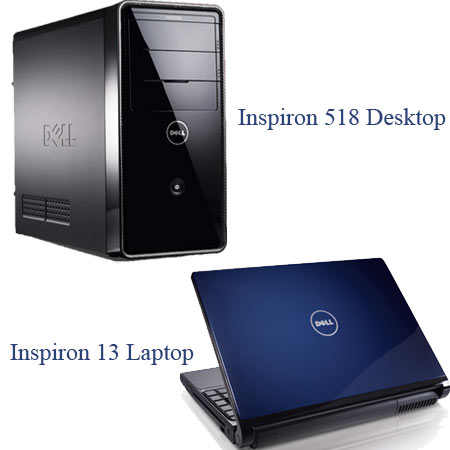Choosing a Computer: Dekstop or Laptop?

There are many things to consider while buying a computer. You consider the brand that you would like to purchase. You also consider the type and capabilities of the processor, the type of graphic cards, the type of audio system drivers. If you are an expert computer user in demand of a high-end PC, you might think about other considerations such as the complications of detaching the CPU cover (if you are into modifying hardware), the type of motherboards and even the type of CPU fan (some even proceed to apply water-cooling for their desktop CPU).
However, before you start off with all these considerations, do you have your mind set on what types of PC you would like? Have you considered whether it's a desktop you want or a laptop that you want? Some people do not know the functional difference between a laptop and a desktop; which is the reason why they made a computer purchase and lamented on their mistakes later when they found out that it does not match with their lifestyle and usage habits.
 Desktop or Laptop???? Desktop or Laptop???? You decide, you pay the price!!!
Desktop or Laptop???? Desktop or Laptop???? You decide, you pay the price!!!Choosing to buy a laptop or a desktop PC is even more important than any other considerations such as your motherboard or the amount of RAM you would like. The reason for this is because while considerations for adding RAM or changing your graphic device can be done after you purchase a PC, considerations on the types of PC are permanent after a purchase; you can add RAM after you buy a PC, but you cannot change your desktop into a laptop after a purchase and likewise is from a laptop to a desktop-not until your PC is damaged beyond repair and you need a new one LOL!!!
First, we'll take a look at the definitive explaination of a desktop and a laptop:
Desktop:
1. A desktop has most of its components in a case, with the exception of the keyboard, the mouse, the monitor and the audio speakers.
2. Desktop casings usually are in the form of tower casings or horizontal casings.

Laptop:
1. A laptop is a totally self-contained, lightweight and portable unit.
2. Laptops are run through both ion-lithium battery cells and external power source.

To decide on which types of computer are more suitable for you, here's some important considerations to understand and analyze:
1. How do you plan to use your computer?
Are you buying this computer for job purpose? Or are you buying it for entertainment and gaming purpose? Do you need to travel around with a PC a lot? How long are you going to use the computer? Do you use your computer for sharing purpose?
 Example of what you can do with a desktop if you use your computer for gaming purpose....:)
Example of what you can do with a desktop if you use your computer for gaming purpose....:) 2. The respective advantages and disadvantages of a desktop and a laptop.
- Desktops cost less of your wallet. They normally use standardize parts, which make it easier for users to "clon" their PCs with different hardware parts. Most importantly, desktop are easier to repair.
- However, desktops claim lots of physical space, are difficult to transport and they require an external power source in order to work.
- Laptops are portable and they are self-contained so they do not require as much physical space as compared to desktops.
- However, they are more expensive, are easier to steal and most importantly, they are more prone to damage and it is not easy to repair or modify it as their hardwares are smaller and less standardized.
 Laptop-stealing are no fresh case in the world. Let's face it: sometimes being more portable also means asking for more trouble...:\
Laptop-stealing are no fresh case in the world. Let's face it: sometimes being more portable also means asking for more trouble...:\Confused? No matter! Here are five basic tips on how to choose the types of PC:
Tip 1: If you are an employee or student with high mobility and in constant need of access to the internet or your data, choosing a laptop is the best for you.
Tip 2: If you are a home user who only uses the PC for gaming purpose, the best choice is to go for a desktop which observes hardware standardization.
Tip 3: If you want to share a PC with friends in your company or college, laptops which have better mobility are the better choice.
Tip 4: If you are buying a computer with the intention of experimenting both on software and hardware matters, then choosing a desktop which is easier to repair or modify is better.
Tip 5: If you decide to make a one-time computer purchase and are not going to modify or upgrade it for a long time as long as it works the way you want , then going for a desktop which will likely fail less is better.
Whatever intention it is, it isn't easy in making a substantial purchase such as a computer...Therefore, it is always important that you've made up your minds early before the purchase, or you might make rash decisions!

0 opinion:
Post a Comment